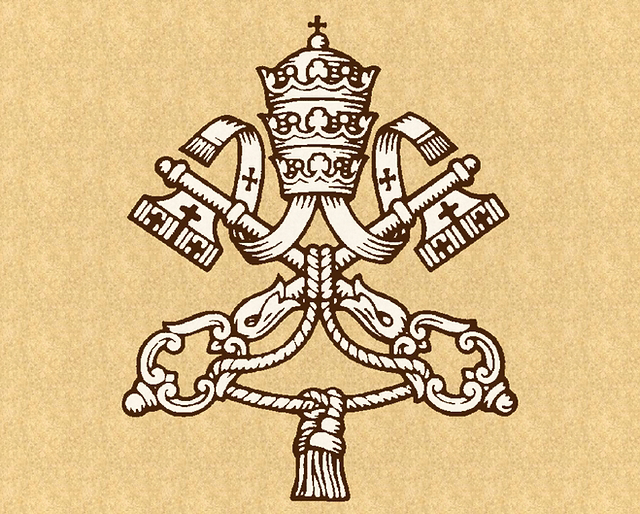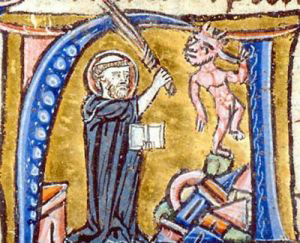Catholics Need to Stop "Name Calling"
Catholics Need to Stop "Name Calling"
An Exhortation to Irenic Argumentation in Inter-Catholic Debate – Particularly as Regards the Power of Influence
Parker H. Zurbuch
Published: December 30, 2023
I have seen numerous troubling posts over the last few weeks, including those Catholics referring to their other fellows in religion by utilizing the following fallacies or persuasive techniques. These occur on both "sides" of the current inter-Catholic debates:
1. Ad hominem (fallacious) arguments. These are least common and most apparent when they occur. They are self-explanatory.
2. Persuasive techniques in where persons are shamed for sharing arguments from certain individuals or groups. This is quite common. It seems to be almost an "ad hominem," by extension. Should persons be "shamed" for putting forth certain valid (although *maybe* not sound) agruments from Catholic social media personalities?
I am attempting here to exhort my fellow Catholoc interlocutors to focus the necessary criticism on the arguments -- not on the persons from whom they come.
I find it un-Christian, immature, and un-virtuous to do this kind of persuasive shaming which attempts to divert a group of the Catholic flock from following a certain person by labeling said person with a certain derogatory name. Again, I see this on both "sides" of these discussions. Even persons I greatly respect, and by all accounts are very intelligent, are frequently falling into this error.
I will proceed to give some examples of this; albeit without giving names, as such an action would certainly be considered hypocritical and against the very aim of this article. The below examples do use the labes of “Conservative” and “Traditionalist” as these seem to be the preferred terms when referring to each respective ideological camp:
A "Traditionalist" naming a particular Conservative a "Popesplainer" and/or "Hyperpapalist."
A "Conservative" naming a particular Traditionalist a "Schismatic" and/or "Dissenter."
In both cases, after making such accusations, the writer then implores the community to not follow the arguments of the accused because they are a "Popesplainer/Hyperpapalist" (P/H) or "Schismatic/Dissenter" (S/D), respectively.
In all reality, it may be a logical consequence of one's view that a certain person can be appropriately labeled a "P/H" or "S/D.” But to ask the followers of the accused "P/H" or "S/D" stop associating with the arguments of said person, because they will then be labeled a "P/H" or "S/D" by the community is an unacceptable persuasive technique of shaming, in my opinion.
The content of recent inter-Catholic debates are of a very detailed and complex nature. Even very learned apologists or theologians seem to find themselves stretched by these topics (the nature of the non-definitive magisterium and the assent or dissent required of Catholics to it). I myself have written on these issues here, but I am far from an expert.
For the sake of clarity: I am not saying that the labels of P/H or S/D are wrong to use or that they are not even appropriate when assessing arguments or even certain persons. These labels very well may each be a logical consequence of an argument made or followed. But what is wrong is labeling a person as a P/H or S/D in order to shame his/her followers into no longer associating with him/her and/or the arguments made by him/her. I mean, really, who wants to be associated with someone liable to be called a P/H or S/D? Who wants themselves to be thus labeled because of such association? This type of persuasive technique is unbecoming of a Catholic.
Certainly, main actors on both sides of these debates have begun to “champion” the labels of P/H or S/D. They wear them as badges of honor; even in some cases making apparel labeled in such a way. Again, this is not necessarily a bad thing; but this type of “championing” also does not give an opponent a reason to attempt to shame others into either taking on such a label or disavowing an argument because it may lead to them being so labeled.
Techniques of persuasion are very powerful, but can easily be abused. Let us consider more carefully how they are used. This is especially important for Catholic “influencers,” as by their very position have an influential impact on multitudes of people. Such power should be utilized in an honest way. The current issues of assessing the nature of assent or dissent owed to the non-definitive magisterium *in the particularly confusing historical context we find ourselves* is a topic that Catholics are free to debate, and this debate needs to be had – yet in a respectful and irenic way. If we do not engage in such discussions peacefully we will prove to be a scandal to Catholics and non-Catholics alike.


Comments
Post a Comment